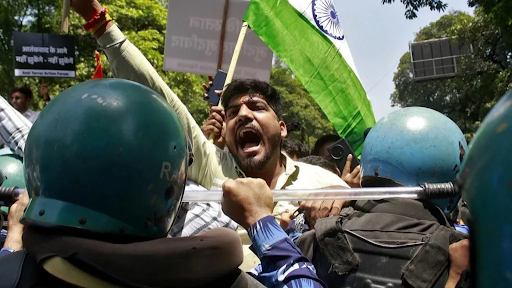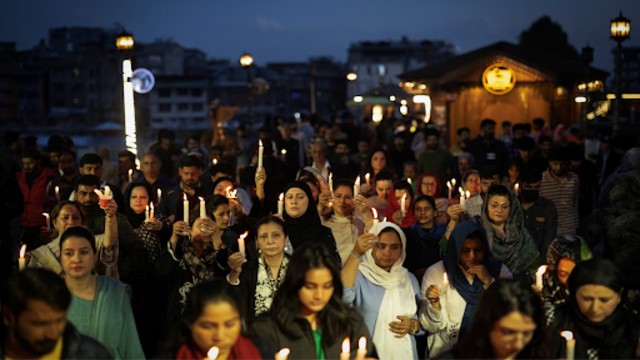
Luigi Mangione, 26, suspected of killing UnitedHealth executive Brian Thompson in New York City, is seen being escorted following an extradition hearing at the Blair County Courthouse in Hollidaysburg, Pennsylvania, on December 10, 2024. Reuters
Luigi Mangione, a 26-year-old man, has been indicted for the murder of UnitedHealth Group executive Brian Thompson, which took place earlier this month on a Manhattan street. According to Manhattan District Attorney Alvin Bragg, Mangione's actions were intended to "sow terror" and cause widespread shock. The indictment includes 11 counts, including first-degree murder and murder as a crime of terrorism. If convicted on all charges, Mangione faces a life sentence without the possibility of parole.
"This was a frightening, well-planned, targeted murder that was intended to cause shock and attention and intimidation," Bragg said, adding that the murder was clearly meant to instill fear in the public. The case has shocked many, not only because of the brutal nature of the crime but also because of the apparent motivation behind it.
Mangione, an Ivy League-educated man, is accused of shooting Thompson outside a hotel in Manhattan on December 9, just before a company conference. The murder followed a five-day manhunt for the suspect, who was eventually arrested in Altoona, Pennsylvania, at a McDonald's restaurant. Mangione is currently being held on gun charges in Pennsylvania, and a hearing regarding his extradition to New York is scheduled to take place Thursday.
While his defense attorney, Karen Friedman Agnifilo, has declined to comment on the case, authorities have suggested that Mangione may not contest his extradition. Once in New York, he will face formal charges and be held accountable for his actions.
The killing of Thompson has sparked public outrage, particularly among Americans struggling with the high costs of healthcare. The United States spends more on healthcare than any other nation, with rising insurance premiums, out-of-pocket expenses, and medical services. Some have speculated that Mangione's actions were in response to frustrations with the healthcare system, though it remains unclear whether his personal health issues played a role in the murder.
Shell casings found at the crime scene had the words "deny," "defend," and "depose" written on them, which some have connected to a book critical of the insurance industry. This has led some to believe that Mangione’s motivations were related to anger at the healthcare system. Despite this, many, including New York Police Commissioner Jessica Tisch, have strongly condemned the act.
"There is no heroism in what Mangione did," Tisch stated. "We don't celebrate murders, and we don't lionize the killing of anyone." The police commissioner’s words reflect the general consensus that violence is never an acceptable means of protest.
The indictment further accused Mangione of committing the murder with the intent to "influence the policy of a unit of government by intimidation or coercion." Mangione’s chronic back pain, which has been mentioned by friends and on social media, may have contributed to his frustrations, although there is no clear evidence linking his health issues directly to the murder.
In a troubling development, Mangione has found some support in certain circles, with over a thousand donations pouring into an online fundraiser for his legal defense. Despite this, his actions have been widely condemned by law enforcement and the public alike.
As the legal proceedings unfold, the case of Brian Thompson’s tragic death continues to raise questions about the motives behind acts of violence and the dangers of using fear as a tool to influence policy.















